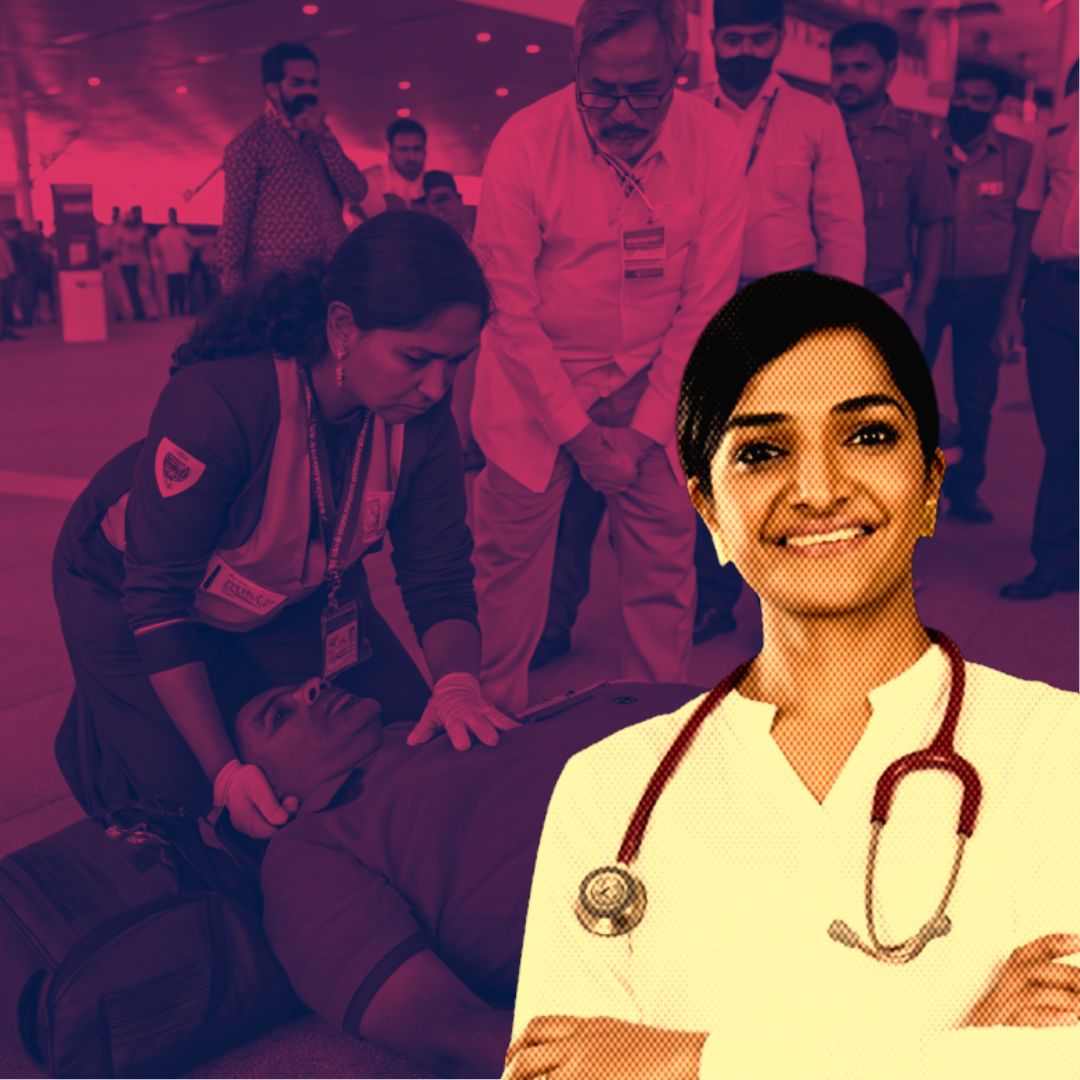A remarkable incident unfolded at Kempegowda International Airport in Bengaluru on December 24, 2024, when Dr. Garima Aggarwal, a nephrologist from Manipal Hospitals, saved a middle-aged man’s life after he suffered a cardiac arrest. While waiting to board her flight to attend a family event, Dr. Aggarwal noticed a commotion and rushed to assist the unresponsive man, performing CPR and clearing his airway until medical personnel arrived. Her timely intervention led to the man’s pulse returning after nearly 15 minutes of intensive care.
Heroic Action at the Airport
Dr. Garima Aggarwal was preparing to board her flight when she heard shouts and saw a crowd gathering around a man who had collapsed on the floor of the airport terminal. Initially assuming it was a minor incident, she quickly realised the gravity of the situation as bystanders screamed for help. “The man had no pulse and was completely unresponsive,” she recounted later. Without hesitation, she left her belongings and rushed to the scene. Drawing on her medical training, Dr. Aggarwal began administering CPR, ensuring that the man’s airway was clear while instructing bystanders to call for additional medical support.
As she performed chest compressions, she remained calm and focused, counting out loud to maintain a steady rhythm. After several minutes of intense effort, airport medical personnel arrived with an automated external defibrillator (AED). With their assistance, they applied the AED pads and delivered a shock to the man’s heart. Remarkably, after nearly 15 minutes of resuscitation efforts, he regained consciousness and began breathing again. Witnesses expressed their relief as they saw him being taken away on a stretcher, stabilised but in need of further medical attention.
Background of the Incident
This incident highlights both the unpredictability of emergencies in public spaces and the critical importance of having trained medical professionals present. The airport staff praised Dr. Aggarwal’s quick thinking and decisive action during a moment of crisis. “It was incredible to see someone step up like that,” said one witness who was present during the incident. “Her calmness under pressure made all the difference.”
Dr. Aggarwal later learned that the man had experienced a cardiac arrest due to an underlying health condition. He was transported to a nearby hospital for further evaluation and treatment, where he received additional care from cardiologists. The incident serves as a stark reminder of how vital it is for individuals to be trained in basic life support techniques like CPR, which can save lives in emergencies.
The Logical Indian’s Perspective
This incident serves as a powerful reminder of the impact that individual action can have in times of crisis. Dr. Aggarwal’s response exemplifies compassion and professionalism, reflecting our belief in the importance of community support and preparedness for emergencies. As we celebrate such acts of kindness, we encourage our readers to consider how they can contribute positively to their communities by learning first aid and CPR techniques.
In an age where health emergencies can occur unexpectedly, fostering an environment where more individuals are empowered to act swiftly can make all the difference between life and death. How can we encourage more people to become trained in emergency response? Your thoughts and experiences are welcome in the comments below!












